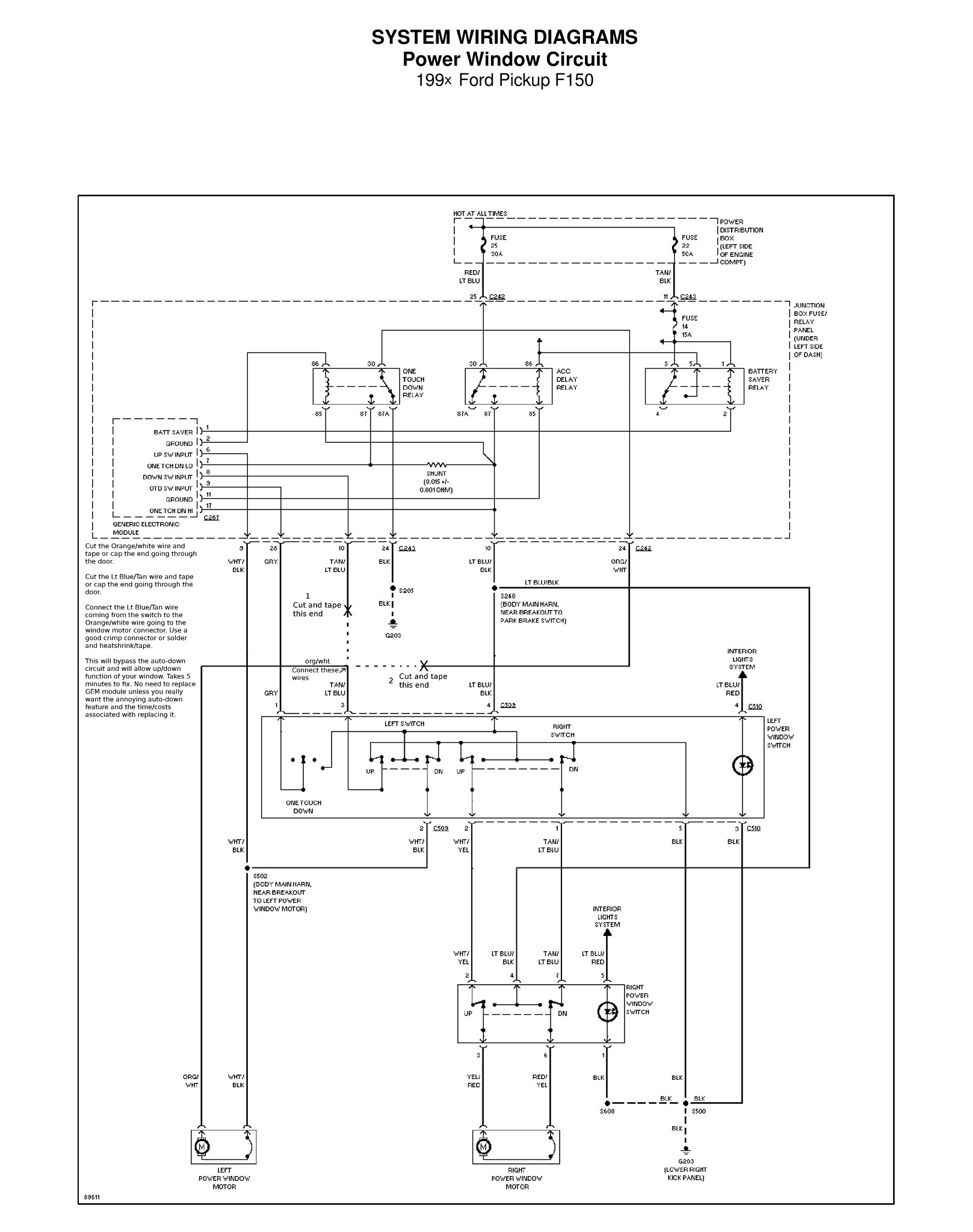When it comes to understanding the electrical system of your Ford F150, having a power window wiring diagram can be incredibly helpful. A Ford F150 Power Window Wiring Diagram provides a visual representation of the electrical connections and components involved in the power window system of your vehicle. This diagram is essential for troubleshooting electrical issues, performing repairs, or installing aftermarket accessories.
Why are Ford F150 Power Window Wiring Diagrams essential?
- Help identify the location of wires, connectors, and components within the power window system
- Aid in understanding the flow of electricity through the system
- Provide a roadmap for diagnosing and fixing electrical problems
- Ensure proper installation of new components or accessories
How to read and interpret Ford F150 Power Window Wiring Diagrams effectively
Reading and interpreting a power window wiring diagram can seem daunting at first, but with a little guidance, it becomes much more manageable. Here are some tips:
- Start by familiarizing yourself with the symbols and color codes used in the diagram
- Follow the flow of electricity from the power source to the components
- Pay attention to the connections between wires, switches, relays, and motors
- Use a multimeter to test for continuity and voltage at key points in the system
Using Ford F150 Power Window Wiring Diagrams for troubleshooting electrical problems
When faced with power window issues, a wiring diagram can be your best friend. Here’s how you can use it to troubleshoot:
- Identify the specific circuit related to the problem (e.g., driver’s side window not working)
- Trace the wiring from the switch to the motor, checking for breaks, shorts, or loose connections
- Test components such as switches, relays, and motors for proper operation
- Refer to the wiring diagram to determine the correct voltage and resistance values
Importance of safety when working with electrical systems
Working with electrical systems, including power window wiring, can be dangerous if proper precautions are not taken. Here are some safety tips to keep in mind:
- Always disconnect the battery before working on any electrical components
- Avoid working on wet or damp surfaces to prevent electrical shock
- Use insulated tools and gloves when handling electrical connections
- If you’re unsure about a wiring diagram or electrical repair, seek professional help
Ford F150 Power Window Wiring Diagram
F150 Power Window Wiring Diagram » Wiring Digital And Schematic

01 Ford F150 Power Window Switch Wiring Diagram – Coearth

2002 Ford F150 Power Window Wiring Diagram Pdf – Collection
Window wiring on F-150 super cab is unplugsd from window

Power Window Solution!!!!!!!!!!!!!!!!! – Ford F150 Forum – Community of

What is the wiring diagram for 2005 F–150 power windows? I have a
